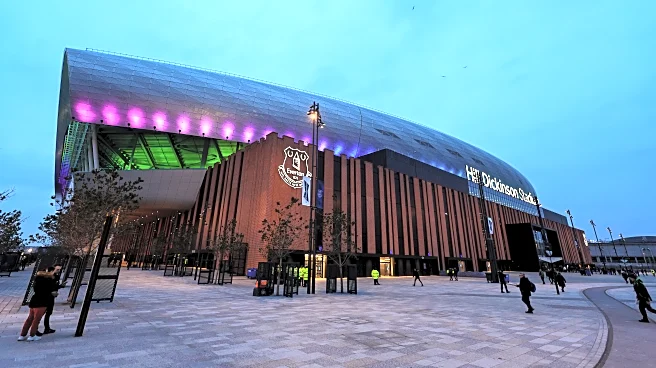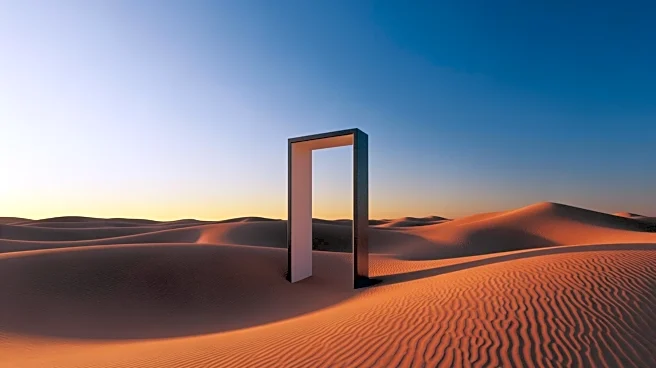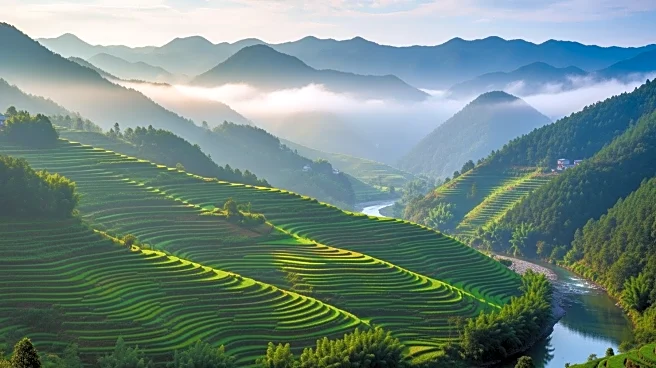What's Happening?
President Trump has taken steps to reposition Pakistan on the global stage as tensions with India continue to rise. This development comes amid reports of Pakistan's tactical advantage in a recent conflict
with India, as noted by a U.S. panel. Additionally, U.S. lawmakers have praised the Punjab government's initiative to modernize brick kilns, highlighting the ongoing collaboration between the U.S. and Pakistan. The geopolitical dynamics are further complicated by a $500 million Memorandum of Understanding that could draw Pakistan into a minerals rivalry between the U.S. and China. These actions underscore the shifting alliances and strategic interests in the region, with Pakistan playing a pivotal role in the evolving landscape.
Why It's Important?
The repositioning of Pakistan by President Trump signifies a strategic shift in U.S. foreign policy, potentially impacting regional stability and international relations. As Pakistan gains prominence, it may influence the balance of power in South Asia, particularly in relation to India. The U.S. support for Pakistan's initiatives, such as the modernization of brick kilns, reflects a broader commitment to economic and environmental progress. However, the involvement in a minerals rivalry with China could lead to increased geopolitical tensions, affecting trade and diplomatic relations. The U.S. and Pakistan's evolving partnership may have significant implications for global security and economic interests.










